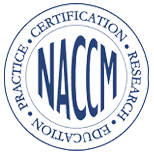Call: 650-245-5285

The Journey Toward Solutions
It is my belief that Brain Fitness Activities and other lifestyle changes may slow the progression of cognitive impairment and increase quality of life in older adults.
may reduce the rate of progression while improving quality of life.
- Physical: diet, exercise, and plenty of sleep
- Mental: reading, puzzles, learning novel and complex things
- Social: spending time with family and friends, and joining groups centered on hobbies and activities
- Creativity and spirituality: music, art, dance, meditation, prayer, mindfulness, and relaxation techniques
I am committed to the belief that lifestyle changes made during early-to-late stages of cognitive impairment may reduce the rate of progression while improving quality of life. Valuable care is provided within a bonded relationship and interwoven with brain-fitness activities that are beneficial to cognitive health.
Daughter, CA
 Many find it difficult to implement lifestyle changes, especially if they are facing a challenging life event such as a diagnosis of mild cognitive impairment (MCI) or dementia. It is helpful to have someone who understands the special needs of the cognitively impaired and knows how to communicate these needs to family members. It is ideal to have a coach whose experience can help avoid pitfalls, plan for the future, and protect the present.
Many find it difficult to implement lifestyle changes, especially if they are facing a challenging life event such as a diagnosis of mild cognitive impairment (MCI) or dementia. It is helpful to have someone who understands the special needs of the cognitively impaired and knows how to communicate these needs to family members. It is ideal to have a coach whose experience can help avoid pitfalls, plan for the future, and protect the present.

